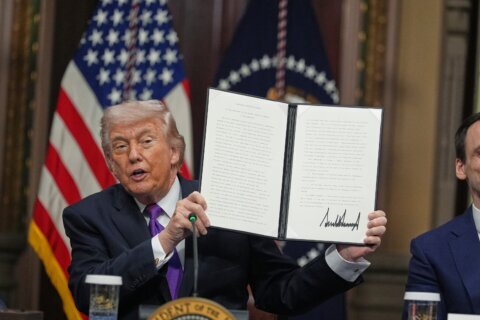WASHINGTON — Virginia’s economy has been growing since the Great Recession, but not as strongly as the national economy. Now, experts think the commonwealth’s economic growth could be decelerating.
There have been mixed signals about the state’s economic performance, and a new State of the Commonwealth report from Old Dominion University suggests that Virginia’s economic picture is a complicated one.
The report describes the state’s economy as one that is still in transition, one that has been heavily reliant on federal spending both in Northern Virginia and Hampton Roads, to one more diversified and strengthened by the private sector.
Sequestration and tightened federal money has taken a bite out of the state economy. That alone knocked the state’s 2015 real GDP growth rate by 0.6 percent.
The state overall grew at just under 2 percent. The state has grown at an under-2 percent pace for the past four straight years.
Federal spending cuts have been more painful for both Virginia and Maryland than other states, such as Florida, North Carolina and South Carolina. The State of the Commonwealth reports says those states have seen strong recent growth because they have larger private sectors.
The private sector accounts for 82 percent of Virginia’s economy compared to 88 percent of Florida’s economy and 87 percent of North Carolina’s economy.
Twenty years ago, the private sector produced only 78 percent of the commonwealth’s gross domestic product.
But the report describes the Virginia and Maryland economies as “feast or famine” states, where more federal spending leads to economic booms and less spending leads to declines.
Growth in Virginia is also not equal across the board.
Charlottesville has seen the best average annual growth since 2008, seeing an average real GDP increase of 1.9 percent. Northern Virginia saw an average increase of 1 percent. Harrisonburg, Lynchburg and Roanoke each saw an average decrease of 0.3 percent in that span.
The report says the state economy is cooling off, with weakening military spending, tourism and a slowdown at the Port of Virginia. However, one bright spot is the growth of Northern Virginia professional and businesses services, which have been adjusting to make up for the lost federal business.







